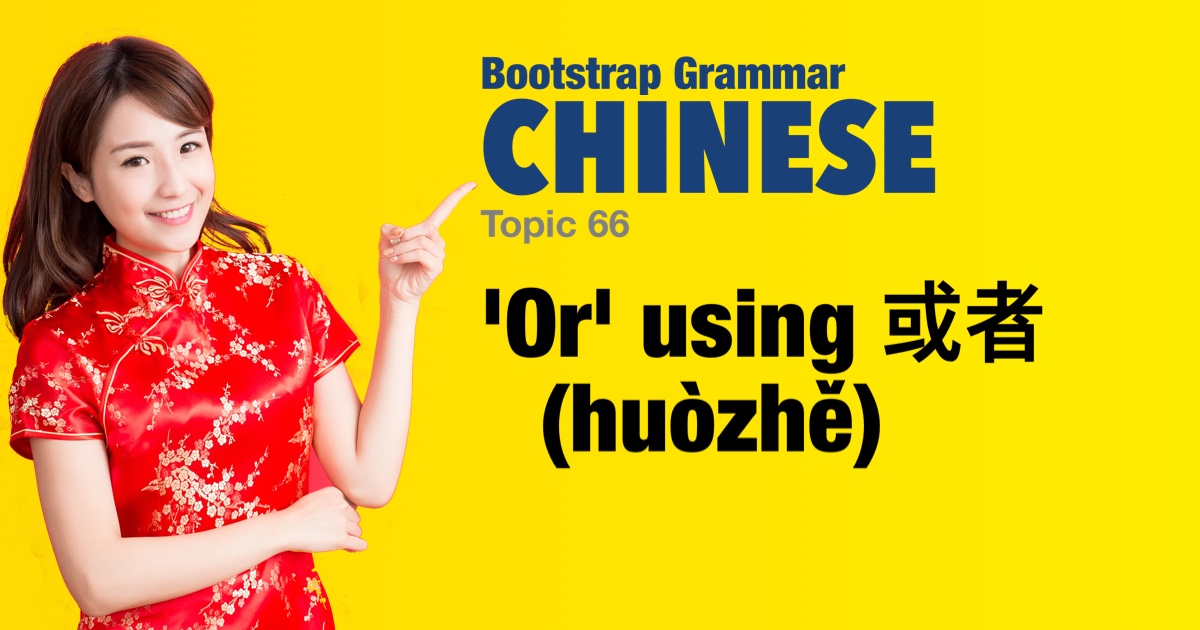Chinese grammar - 'Or' using 或者 (huòzhě) |
|||
|
|||
In Chinese, the connector 或者 (huòzhě) is used in declarative sentences to present alternative options. — It is like 'or' in English. However, it should not be used when asking about or offering alternatives. 还是 (háishì) is used for this and will be covered in the next topic. |
| Examples: | |
|
我们可以在这里或者那里吃饭。
wǒmen kěyǐ zài zhèlǐ huòzhě nàlǐ chīfàn. We can eat here or there. |
|
|
我通常喝茶或者咖啡。
wǒ tōngcháng hē chá huòzhě kāfēi. I usually drink tea or coffee. |
|
|
他看书或者看电视。
tā kànshū huòzhě kàn diànshì. He reads books or watches TV.
|
|
|
我们去公园或者图书馆。
wǒmen qù gōngyuán huòzhě túshūguǎn. We go to the park or the library. |
|
|
你可以带书或者笔。
nǐ kěyǐ dài shū huòzhě bǐ. You can bring a book or a pen. |
|
|
她在家做饭或者工作。
tā zài jiā zuòfàn huòzhě gōngzuò. She cooks or works at home. |
|
|
他们总是吃米饭或者面条。
tāmen zǒngshì chī mǐfàn huòzhě miàntiáo. They always eat rice or noodles. |
|
|
我们在这里或者那里玩。
wǒmen zài zhèlǐ huòzhě nàlǐ wán. We play here or there. |
|
|
你可以写信或者打电话。
nǐ kěyǐ xiě xìn huòzhě dǎ diànhuà. You can write a letter or make a phone call.
|
|
|
他去学校或者去公司。
tā qù xuéxiào huòzhě qù gōngsī. He goes to school or goes to work. |
|
|
我们听音乐或者看电影。
wǒmen tīng yīnyuè huòzhě kàn diànyǐng. We listen to music or watch a movie. |
|
|
他去图书馆或者市政厅。
tā qù túshūguǎn huòzhě shìzhèngtīng. He goes to the library or townhall.
|
|
 |
|




